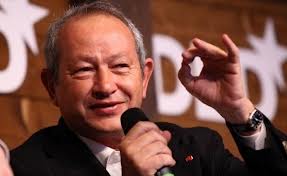Egypt’s Minister of Water Resources and Irrigation, Hani Sweilam met with Eve Bazaiba Masudi, the Deputy Prime Minister and Minister of Environment and Sustainable Development of the Democratic Republic of the Congo, in Kinshasa on Saturday, to discuss bilateral relations and water cooperation between the two countries.
During the meeting, Sweilam stressed the uniqueness of the strategic relations that link Egypt and the DRC at all levels. He emphasised Egypt’s support for the development efforts pursued by the Congolese president, which aims to increase economic development rates and improve the standard of living of the Congolese citizen.
He also expressed aspiration to work together to enhance bonds of cooperation and integration between the two countries in the field of sustainable development of water resources, as well as the transfer of Egyptian experiences in the fields of irrigation and agriculture and the optimal use of water resources to the DRC.
Sweilam also stressed Egypt’s keenness to build the capabilities of Congolese cadres through various training courses organised by the Egyptian Agency for Partnership for Development and other Egyptian ministries and institutions. “We are facing a golden opportunity to enhance cooperation between both countries through exchanging experiences to face water challenges, especially those associated with climate change,” he indicated.
Moreover, the Egyptian Minister expressed Egypt’s appreciation for the positions of the DRC in support of the Egyptian position on water issues, stressing Egypt’s keenness to strengthen the bonds of cooperation between the basin countries by creating common interests and achieving mutual benefit for all parties.
During the meeting, the two ministers reviewed the components of the cooperation protocol signed between the two sides, which extends until 2027 in the field of integrated water resources management in the DRC. It includes many development activities such as the establishment of underground drinking water stations, the establishment of a centre for forecasting rain and climate changes, and the establishment of energy units. small hydro.
At the conclusion of the meeting, Sweilam confirmed that the next stage would witness the implementation of more joint projects, especially the project to establish 12 underground drinking water stations in the capital, Kinshasa, equipped with solar energy to provide clean drinking water to citizens, in addition to applying modern irrigation systems and transferring their technologies to the DRC.



